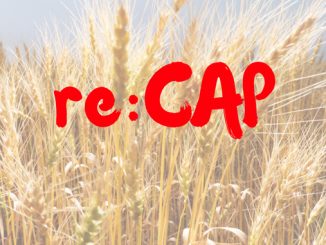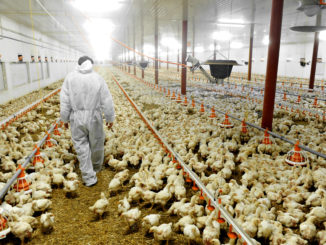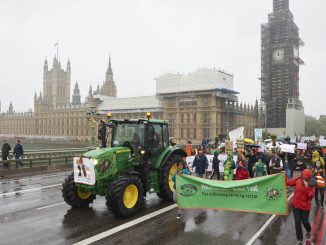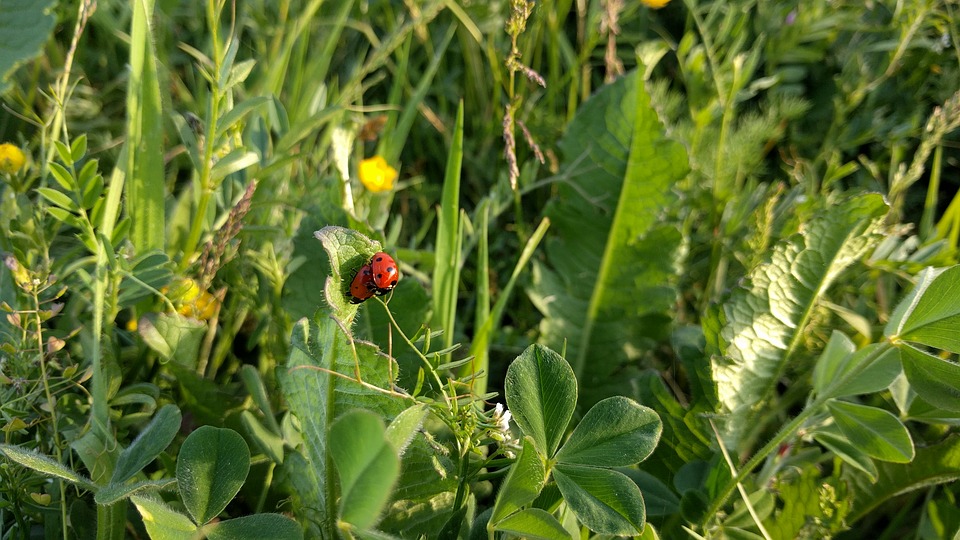
With much of Europe in lockdown due to the Covid-19 outbreak, the public consultation phase for the European Commission’s Farm to Fork Strategy concluded a few days later than expected last week. In this first instalment in a three-part series covering feedback on the strategy so far, we look at what environmental NGOs had to say. Friends of the Earth Europe, WWF, Birdlife Europe, Greenpeace, ClientEarth and Pesticides Action Network all weighed in on the Commission’s Roadmap to food sustainability. They pointed to the need for clearer commitments, binding targets and a coherent, long-term vision for the transformation of the food system that needs to take place. The groups insisted that CAP must be aligned with the Farm to Fork Strategy. Louise Kelleher reports.
Healthy ecosystems are the foundation for food production, but they are pushed to breaking point by the current system. In the face of existential threats, Farm to Fork needs a coherent vision that extends beyond the Commission’s term, say environmental organisations. The Roadmap for the strategy is a step in the right direction, they find, despite some glaring omissions. Now it needs to be fleshed out with concrete targets and actions. A crucial piece of the puzzle is to align Farm to Fork with CAP. Another is to recognise that farmers are locked into an unsustainable food system. All DGs will have to pull together to hammer out an integrated sustainable food policy.
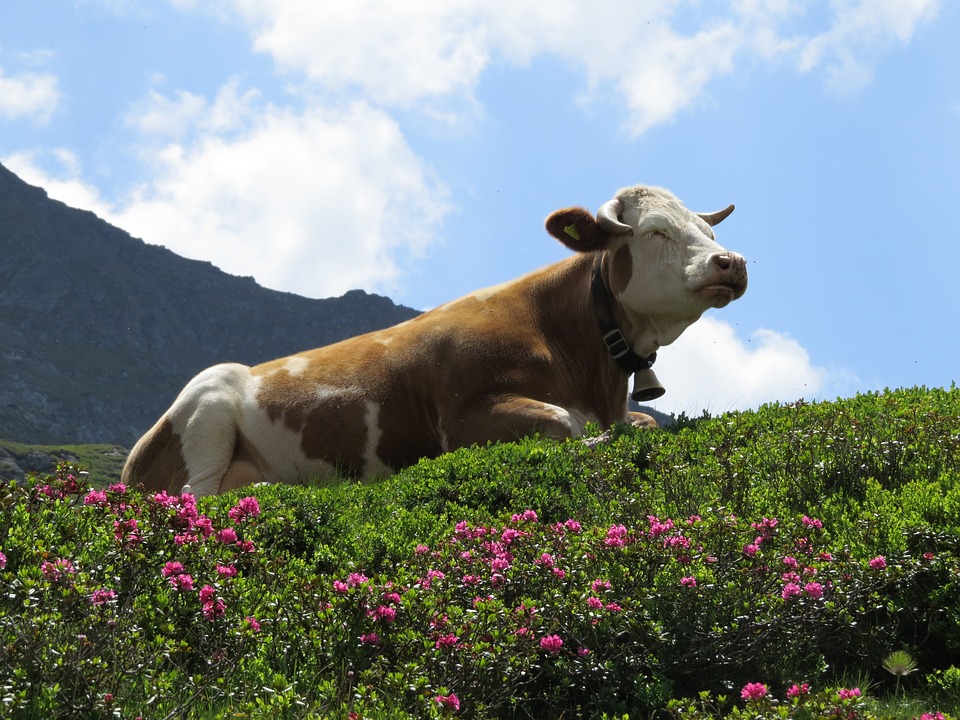
Missing meat
Meat and dairy are not mentioned in the Roadmap. Greenpeace challenges Farm to Fork to acknowledge the elephant in the room: the EU needs to eat less and better meat, dairy and eggs. It calls for a comprehensive set of measures to encourage a shift to more plant-rich diets. To scrap “perverse incentives” for meat and dairy consumption, it says, and bring in fairer pricing to reflect the true environmental cost. It also recommends legally binding maximum livestock density limits.
Farm to Fork must explicitly state the need to reduce consumption of food with a high environmental footprint, says WWF. The strategy needs joined-up thinking: if we are to move towards sustainable and healthy diets, we’ll need a change in food environments. WWF wants to see an action plan on proteins for example. Friends of the Earth recommend a cross-cutting policy focus on cutting meat and dairy consumption.
Greenpeace, WWF, Friends of the Earth and Birdlife reiterate their call for Farm to Fork to lead the way to less and better meat, dairy and eggs in a joint letter to the Commission that was also signed by ARC2020.
Reality check on CAP
Birdlife calls for a paradigm shift in food production: to keep within planetary boundaries, environmental sustainability must come before economic and social sustainability. We need an urgent transition to agroecological farming, say WWF and Friends of the Earth – and CAP should be used to fund it.
ClientEarth warns against the dangers of letting member states set the bar for environmental and climate action. It asks how member states’ CAP Strategic Plans will reflect the ambition of the Green Deal, and challenges the Commission to take a reality check on CAP. While the roadmap celebrates CAP as part of an ongoing transition into more sustainable food systems, this doesn’t chime with the reality of primary production.
The European Green Deal includes a pledge to “do no harm”. WWF says this should be applied to phase out environmentally-harmful agricultural subsidies at EU and member state level. It recommends quantitative ten-year targets for organic farming, agrochemicals, GHG emissions and carbon dioxide removal, and farmland biodiversity. These targets should be reflected in the CAP Strategic Plans.
Drastic change for biodiversity
WWF call for targets to reduce the use of mineral fertilisers, deconcentrate animal farming and close nutrient cycles. These targets would force a drastic change to improve the health of freshwater resources and tackle nutrient leaks from farming (especially nitrogen and phosphorus). Additionally they would deliver climate benefits by reducing GHG emissions from farming. Birdlife calls out over-abstraction of water as a key barrier to the sustainability of food systems with major negative impacts on wildlife.
Overall the EU needs to mitigate the devastating impact of intensive agriculture on biodiversity, says the WWF. Again, targets are its weapon of choice – combined with enhanced support to High Nature Value farming – to create natural landscape elements on every farm. WWF also calls for ambitious and enforceable targets to reduce the use of pesticides.
IPM as the new normal
Friends of the Earth, Greenpeace and the Pesticide Action Network (PAN) are all calling for binding targets to slash synthetic pesticide use by 80% by 2030. Greenpeace wants to halve pesticide use by 2025 and aim for a full phase-out by 2035. PAN challenges the EU to take pesticides seriously. The existing pesticide authorisation system is not being used effectively. Neither are the current pesticide use indicators. PAN recommends updating the Harmonised Risk Indicators, and adding an indicator to measure annual pesticide use for the main types of crops at EU and national levels.
More broadly PAN advocates targets to increase the share of organic farming – within CAP, and in the Sustainable Use of Pesticides directive. Under the current system of incentives, farmers are locked into a short-term economic model. CAP financial supports should be explored as a tool to incentivise change; pesticide bans and pesticide taxation are other tools to consider. Under Farm to Fork, ecological practices and Integrated Pest Management (IPM) should be recognised as “the new normal”, says PAN. Calling for dynamic change, it envisions conventional farmers inching up an IPM ladder towards more holistic agro-ecological and organic practices. Greenpeace wants to shore up the EU directive on pesticide use and enshrine the application of IPM principles into law.

Friends of the people
Friends of the Earth advocate a “citizens first” approach to research and innovation, based on the precautionary principle. Like Greenpeace, they insist that gene editing and other new generation GMOs must be fully assessed and labelled under the current GMO legislation.
Friends of the Earth place the emphasis on social, economic and global justice. As a new food system is carved out, what will “leaving nobody behind” look like? A socially just food economy that pulls up small farmers, upholds peasant rights, fosters alternative business models (such as shorter supply chains and coops), and provides safe, healthy and sustainably-produced food for everyone.
ClientEarth insist the people have a real say in Farm to Fork. Under Article 7 of the Aarhus Convention, a proper public consultation of the full Farm to Fork strategy will be required before it can be adopted. Fast-tracking is no excuse for disregarding public opinion.
Globally just food system
To move towards a globally just food system, Farm to Fork will need methodologies to assess the impact of EU policies and trade deals on food systems in third countries, say Friends of the Earth. Non-EU imports that contribute to deforestation remain a risk. Friends of the Earth want to regulate to reduce use of palm oil and soy products in the EU, and place the onus on companies to keep tabs on these sorts of risks in the supply chain.
With the EU institutions at a standstill, the launch of the Farm to Fork strategy has been delayed until late April. But as the Covid-19 crisis gathers pace, climate breakdown and ecological collapse continue unabated. Lockdown is bringing supply chains and food security issues into the spotlight. The threat to lives and livelihoods is prompting many of us to rethink our priorities. Let’s hope this interruption to business as usual will give policymakers pause to re-imagine the new normal for our food systems.
More on Farm to Fork
CSOs Open Letter on the Farm to Fork strategy to Achieve Sustainable Food Systems
Awkward Alignment – How will Green Deal Momentum and the CAP Process Work Together?



